Mad River interview with Rick Bockner & Tom Manning
Mad River was a seminal band of San Francisco scene during the late sixties. The band was formed in Yellow Springs, Ohio and soon moved to San Francisco, where they met a lot of interesting musicians and beat poets, including Richard Brautigan. They released two albums and shortly after disbanded.
“We were less of a dance band than an expression of a young, rebellious, state of mind.”
You were all Antioch College students in Yellow Springs. What did you study?
Rick Bockner: I thought I would go into psychology or psychiatry. Antioch had a work/study program that placed students in jobs for 3 months at a time. I worked in the NYU hospital in New York in the psych ward. That made me question my choice and probably saved me tons of money in tuition to med school!
Tom Manning: Biology / marine science / straight pool.
You began as a campus blues band. What was your set-list and what blues artists influenced you at the time?
Rick: Mad River Blues Band was the campus band at the time and we did a lot of Paul Butterfield, Muddy Waters, and other emerging electric blues that was coming out at the time. Mike Bloomfield opened up the genre when he did East/West. That introduced the eastern scales into popular music at the time and we worked with that as well (“Wind Chimes” in particular). Also some of the early Jesse Colin Young stuff was being listened to, and a few other of the east coast singer/songwriters. We did some soul tunes as well (“Workin’ In A Coalmine”). Our folk roots figured into the set list at times, and my interest in ragtime guitar as well.
Tom: All members were Antioch students except Duke Dewy, who was Yellow Springs high school. Started out as a blues band and also covered some top 40 stuff until we started writing our own music. We loved all kinds of music…all of us had very broad tastes, from rock to jazz to classical to folk.
Was there any other band in Antioch College at the time?
Rick: Not that I was aware of.
Tom: We were the main action on campus, but there was a jazz band and some other players.
This was happening around 1965/1966?
Rick: I went to Antioch in June of 1966. The band had just formed, but I did not formally join until early 1967.
Tom: Mad River Blues Band formed in spring of 1966. David and I started playing folk stuff together in 1965, Duke was drumming for young rockers, Greg Druian (rhythm guitar from spring of 1966 to spring of 1968), Lawrence played folk, but was into many other instruments as well. Rick, who played ragtime guitar, joined the band in 1967 when we left for San Francisco.
“Kafka meets the 60’s.”
In 1967 you moved to Berkeley. Let’s first get into the recent Shagrat Records release of unreleased material.
Rick: The music on the recording that Shagrat released was recorded as a demo before we headed to San Francisco. It was interesting for me to hear after all those years, as I could hear the influences of some musical styles that were just emerging in the music of other bands. The Indian raga music that Ravi Shankar and the Beatles had expressed was evident in Windchimes. The extended solos were just beginning to get more common. The ragtime sound of “Jerry’s Tune” foreshadowed the music that Country Joe and the Fish would later release. Also the lyrics that ranged from protest and outrage to just plain ridiculous, made songs not just about the trite and tried themes of the popular music of the previous era. Mad River’s music was driven by the politics of the Vietnam War and the protest movement that followed. We also related to the poets who were using new language to express their outrage at the way things were going. This made us a bit different from some of the SF bands who were more into open rambling psychedelic sounds. We did some material like that, but it was usually rooted in some kind of political darkness. Kafka meets the 60’s.
We were not trying to please anyone but ourselves with our choice of songs. We mixed blues, ragtime, psychedelic, and soul into our music to create something that expressed the crossroads that our subculture was at in those days. Very idealistic, also suspicious of authority, and committed to the values of the new society we wished to see. In this earlier material I can hear the seeds of what we would later become.
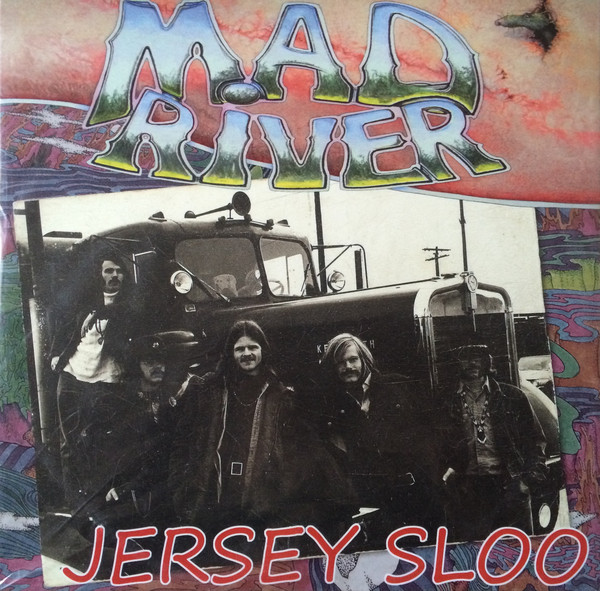
Tom: Side 1 was recorded in Dayton Ohio as a demo before we left for California in 1967, and side 2 was recorded after the second album was completed (after I had left the band to return to college).
There’s an early version of “Wind Chimes” plus three unreleased tunes including very interesting track titled “Timothy”.
Rick: These recordings were in Duke Dewey’s attic on tape. Lawrence had the Jersey Sloo tapes. We feared they would disintegrate when played, so we only had one chance to digitize them for reproduction. It worked out, thankfully. The Windchimes track included the “Hare Krishna” chant that we later dropped from later versions we recorded. “Timothy” was an obscure tune that did not stay in our repertoire for long, but always seemed to me to reflect some of the newer English band sounds of the day (Yardbirds, Kinks, etc.). I don’t know why “Jersey Sloo” did not make it onto a later record, but the lyrics are obscure and dark, with a driving pulse, and a great solo by David. It just did not make the cut for some reason.
Tom: “Wind Chimes was recorded 3 times, once for the demo which later became the Shagrat album, once for the EP which was released in 1967 on WEE Records, and once for the first album. It was originally a much longer tune when played live, but was cut down and edited for the WEE Records version. “Timothy” was an early song before we went to California, and was partially about Timothy Leary & LSD.
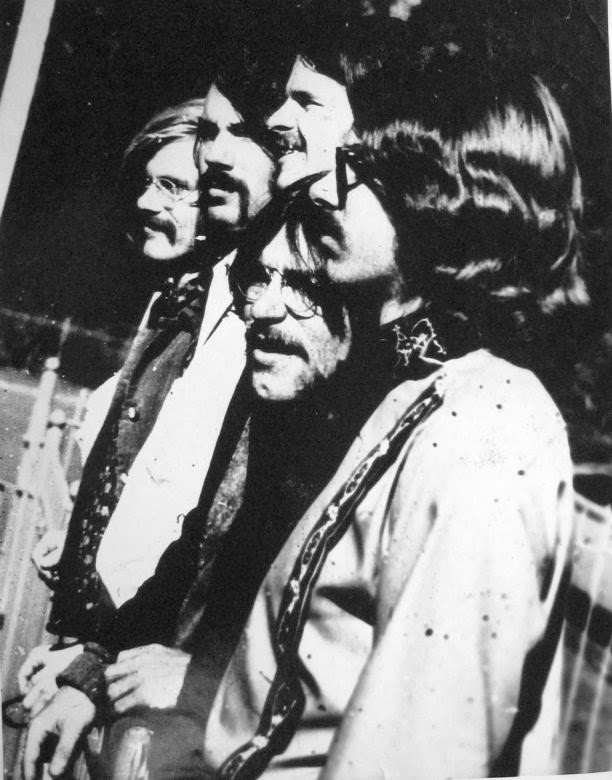
Mad River moved to Berkeley in 1967, got a band house where you all lived and practice, and began playing gigs in Provo Park. The band did a three song demo that year which got the attention of several major labels. You eventually signed with Capitol Records and released the classic recording Mad River, produced by Nick Venet (who also produced Bobby Darrin, Fred Neil, Linda Ronstadt, and others). The group consisted of lead singer and bass player Lawrence Hammond, drummer Leroy ‘Duke’ Dewey, lead guitarist David Robinson and guitarists Tom Manning and Rick Bockner. Why did you decided to move to Berkeley and what’s the story behind finding a house where you could practice?
Rick: We wished to be closer to the scene we knew was emerging in the Bay area. We left Ohio in a Volkswagen bug, and a Saab car. We had no money and that forced us to live in close proximity to each other. Although this was mainly a financial decision, we also were all committed to devoting our time to practice and living together in the MR house in Berkeley meant that we could practice intensely. The living room was the dedicated band room and we shared the bedrooms. It was a wonderful time, although we were really scratching to get by. We even went to the racetrack to see if we could walk the horses at 5 in the morning to make a few bucks before the day started and we would practice for many hours a day. The 3 song EP got our music to a few people who helped us get signed. At one point we were flirting with 3 labels, including Vanguard Records who sent Sam Charters to make us an offer. I would have loved to work with Sam, as I was very familiar with his work on early blues and admired him. But eventually Capitol won out and we recorded with Nick Venet producing- not a good match for the band. We were very green in the studio and it took a lot of patience and persistence on all our parts to get the recording finished. We were young and temperamental. Nick was from LA and to us seemed too slick and like a ‘company man’ (which he was). He wanted us to dress differently, but we refused. He did not really get the material. I think Capitol was hedging their bets on the SF music scene by signing us. In retrospect, it was a mistake to sign with them and I still get bitter thinking about it and the subsequent lack of support or good development that Capitol gave us.
Tom: San Francisco was the place to be for a rock band in 1967 during the Summer of Love. We settled first in Berkeley because Duke’s sister lived there and we liked being in the smaller University town. Duke’s full name is Gregory Leroy Dewey, and we knew him as Greg during the Mad River years. He became Duke after MR broke up and he joined Country Joe and the Fish.
“We were a bit like the Mothers of Invention in that everything was closely orchestrated.”
You were very unique, innovative and psychedelic. You also had political lyrics. What can you tell us about song writing process in Mad River?
Rick: Lawrence was our main songwriter, although the music took shape as a band conglomeration. Lawrence would come with lyrics and a pretty good idea about the musical structure and melody, then the band would ‘work’ it into our own arrangement. We were a bit like the Mothers of Invention in that everything was closely orchestrated, even the open solos and improvised bits had a particular place. Often the songs moved through moods within the piece- going from a pastoral beginning and building to a crescendo and back again. We really had to pay attention to the cues to get through the tunes, as they had almost a classical structure. Having 3 guitars (until Tom left) in the band meant that we each had to cover a portion of the range of the instrument. We each carried a part of the texture.
“Underneath the veneer of psychedelia, we all had a good grounding in folk, bluegrass, ragtime, and blues.”
Later, more of us began to present songs for our set lists. Duke began to sing some leads, I began to solo more or do duets with David. By the time we disbanded, we were all writing material for the band. I liked where it was going and regretted it when we broke up. Underneath the veneer of psychedelia, we all had a good grounding in folk, bluegrass, ragtime, and blues. By the second album, we were referring to that music more, and Lawrence’s songwriting was less predominant than earlier.
Our political colours were amplified by our friendships with some of the radical poets and thinkers of the times. Richard Brautigan, The Diggers, Allen Ginsberg, Lenore Kandell, Peter Berg, Carl Ogelsby- all of them played a part in forming our music. It was crucible of alternative culture and we appreciated the new perspectives on old news that was evolving. One of my favourite gigs was at University of California in Santa Barbara. We were the music part of an evening of poetry by “Poets Against the War in Vietnam”. That pretty much placed us where we wished to be in the spectrum of culture of the time. We were less of a dance band than an expression of a young, rebellious, state of mind. Being from a liberal college, we also appreciated the fusion of art and politics that was happening.
Tom: Lawrence wrote much of the music for MR, and he had some classical training.
We were really loud!!
Like we mentioned above your debut came out in 1968 and contains “Merciful Monks”, “High All the Time”, “Amphetamine Gazelle”, “Eastern Light”, “Wind Chimes”, “The War Goes On” and “Hush Julian”. Would you like to share with us a few comments about the songs and maybe what are some memories from producing and recording your debut? What kind of gear did you use?
Rick: When we got signed we received a signing bonus (the only money we saw from Capitol) and went out and bought new gear and a van. Duke bought a set of new drums (2 bass drums, 2 toms, high hat, snare and cymbals). I bought a new 335 ES Gibson guitar. David bought a 345 stereo Gibson of similar design to mine. Tom got a Gibson 12 string. I believe Lawrence continued to play his Gibson bass. I haven’t had a shopping trip like that since. I got a Fender Super Reverb amp with a Sun speaker cab with 2-10″ Electrovoice speakers in it. David had a Twin Reverb with 2 speaker cabs. We were really loud!!
“They had sped up the tape to make it fit on one side of an album.”
My memories of the sessions are a hodge podge of details. We recorded at Golden Gate Sound and Leo de Gar Kulka was the engineer. Nick Venet produced us. It was not an easy session and we did not do enough rehearsal prior to going into the studio, so it took a lot of time, which stressed us all. I think it was 125 hours of studio time or so. Bear in mind that we were running a tab with Capitol to be repaid from royalties that included studio fees, engineer fees, producer fees, any extra musicians, etc. By the end we were glad to be done with it. The really bad news came when we heard the first copies. They had sped up the tape to make it fit on one side of an album, and that gave Lawrence’s voice a banshee quality that really pissed us off. What a bummer! We lost faith in Capitol at that moment and resolved to find another producer for the second album- someone we knew and respected.
Tom: MR had music influence by Eastern philosophy, anti-Viet Nam war sentiments, the drug culture, and all the great music that was all around us.
We played Gibson guitars (David-345ES, Rick-335ES, Tom-335ES 12 string, Lawrence-Rickenbaker bass. I do not know what Duke’s drum kit was.)
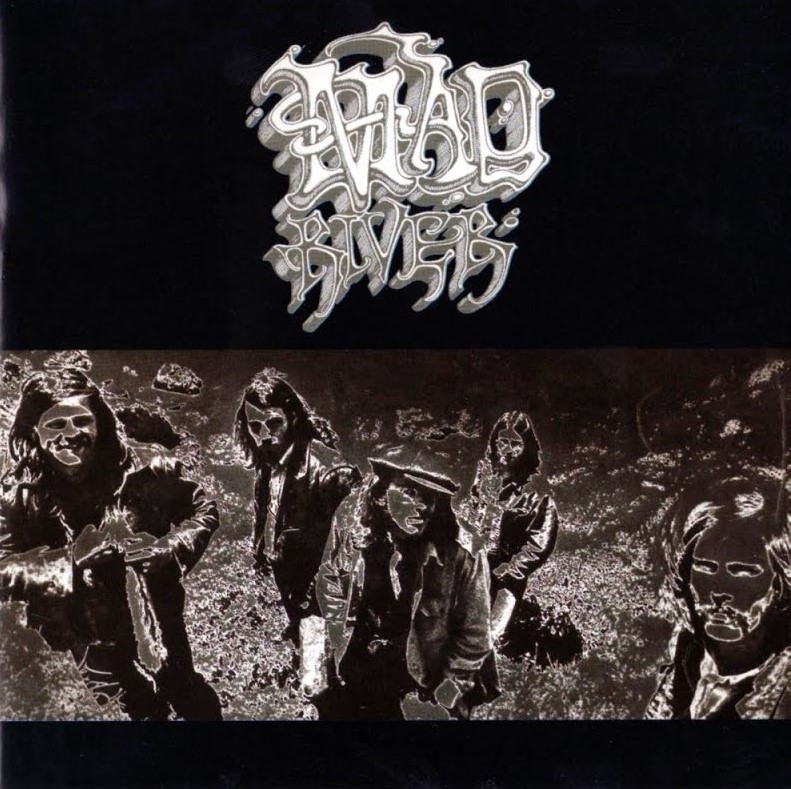
Did the debut get any airplay?
Rick: The debut was actually very well received. Tom Donahue, the head DJ at the main station in SF took a shine to us and really helped us get a leg up in the local scene. “Amphetamine Gazelle” was our ‘single’ and everyone thought we were a bunch of hip, drug addled, hippies. Actually, our drug habits were pretty tame compared to most of the groups we played with, and that song did not represent us accurately. We got some national play, and the album went to 99 or something in the Billboard Charts. Mainly we used the album to get gigs and we began to play the big halls for the first time. We also toured to Vancouver, B.C. and played the Retinal Circus. Mostly we played within the Bay area and California/Oregon area. There was plenty of work at the time and we were busy. College stations, some alternative stations, and Bay Area media were good to us.
Tom: Some, but not a lot.
“Santana opened for us.”
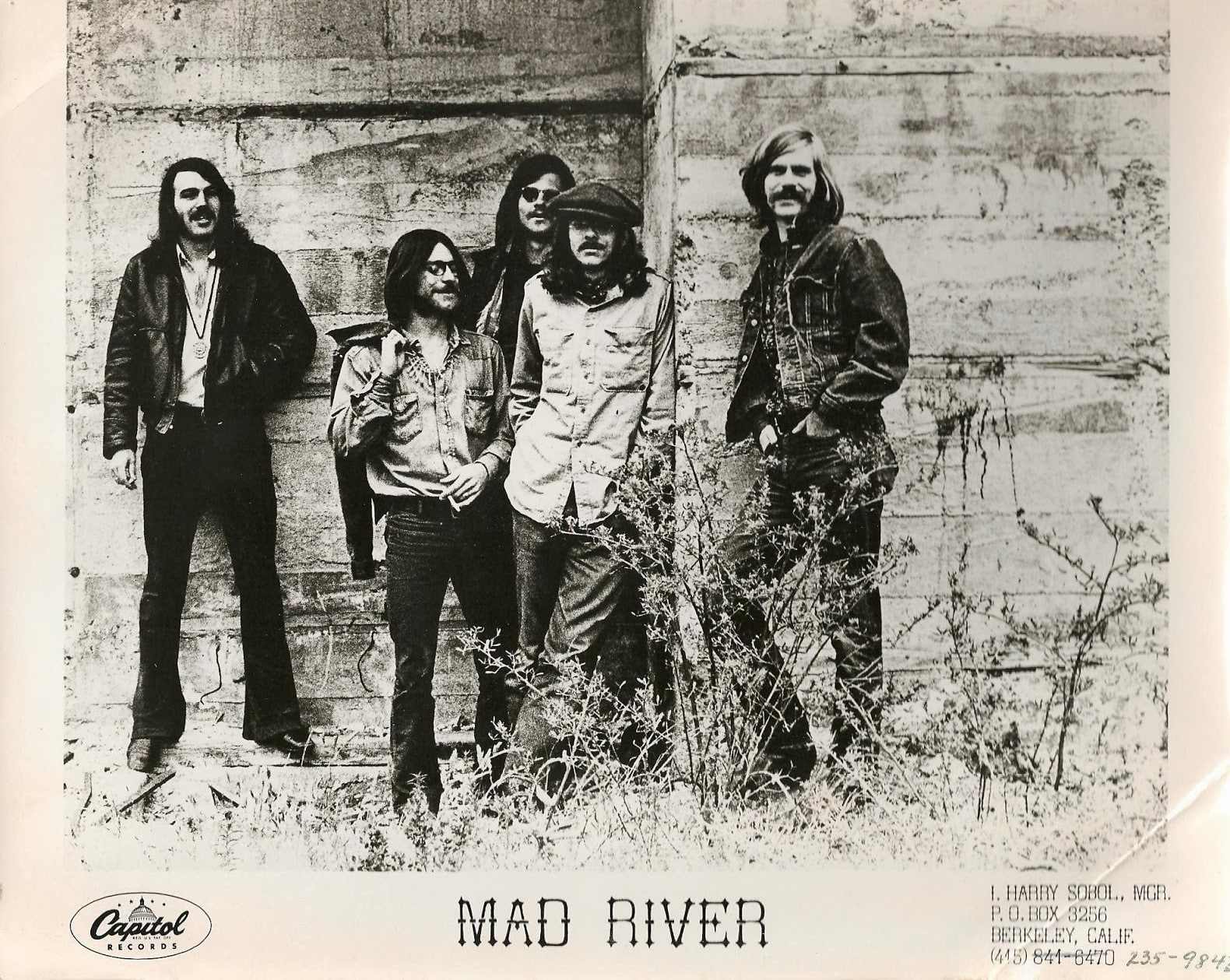
You played at the Avalon Ballroom, the Fillmore, the Straight Theatre, and at many of the large Golden Gate Park gatherings.
Rick: Yes, we did many shows in the Bay Area. Bill Graham wasn’t too impressed with us, and we had a very bad manager in the early days who pissed off everyone he met and ripped off the band. We also got paid $10,000 to sign with the William Morris Agency to book us exclusively. They got us one gig in a high school in Fresno or somewhere and that was it! They just wanted the option on us in case we broke into the big time, and the contract restricted our ability to hire anyone else to do the job for us. Another lesson in the music business for MR!
Chet Helm was very good to us and hired us on numerous occasions to play the Avalon. I think we played the Fillmore 2 or 3 times only. We shared practice space during the day at the Carousel Ballroom with Big Brother, and we did several gigs there. For a complete (very) list of our gigs, check out the site www.chickenonaunicycle.com and click on Mad River.
The park gigs were wonderful and always fun. We played a lot of Digger functions and big outdoor events, also regular performances in Provo Park in Berkeley. We did the Renaissance Faire with the Doors on Mt Tamalpais in Marin County. Also a crazy Digger spontaneous event on the Beach in Santa Barbara (or was it Santa Cruz?) where people parked on the freeway to get there and it was chaos. The police were trying to find someone in charge without success (“You are in charge officer. What do you want to see happen?”) and it was a crazy night.
The Straight Theatre gigs we did were memorable. Our first one there, Santana opened for us. It was one of their very first gigs. They were in high school, and we all knew they would be big. We played a few gigs at the Greek Theatre in Berkeley and on campus there. Over the years we got to play with or open for some great acts: Sonny Rollins, Buddy Guy, the Jefferson Airplane, Janis Joplin and Big Brother, Country Joe and the Fish, Steve Miller, Mimi Farina, and tons more. It was a great way to spend my late teens!
A favourite memory is from July 25, 1967 when Jimi Hendrix was booked into the Fillmore and “Purple Haze” had just come out. No one really knew who Hendrix was at that point, and he played for free just outside our apartment window in the Panhandle- a boulevard coming off of Golden Gate Park. We saw this truck setting up and wondered who this guy with the Sgt. Pepper coat and an afro was. When he began to play, you could see people coming out of the adjacent buildings to go to the park and listen to him. I have a picture that appeared in Rolling Stone magazine from an article titled ‘Greatest Moments in Rock and Roll’ which shows Jimi photographed from behind while he played on a flat deck truck. He had his legs apart in his signature ‘going for it’ stance, and you can see all of Mad River sitting on the lawn in front of the truck. Only about 300 people were there. It was a great event to be at. I still tell my kids that Jimi Hendrix played in my front yard.
Tom: They were great gigs, and we played many small clubs, like the Matrix, the Steppenwolf, the New Orleans House, high schools, colleges, and many others too numerous to name.
In Berkeley you met famous Richard Brautigan.
Rick: Richard was our benefactor. When we lived in Haight Ashbury and were starving, he would show up with food, wine, and friends and we would talk politics and poetry. He was a big part of the scene, especially after Trout Fishing in America came out and he was in Time magazine. We got to repay the favour by paying for the printing of a free book he did call Please Plant This Book– a collection of flower seeds in packets with poems on them. We printed 500 and gave them away on the street.
Richard introduced us to the people around him and the literary scene of the times. He was a prince of a man and enjoyed nothing more that having a glass of wine in a visible cafe and checking out the people going by. For us, he represented new culture and success of the sort we could relate to.
I admired the work the Diggers did to feed and clothe the young people flowing into San Francisco with no idea what was going on. Things got a lot weirder for Richard later, but I will always remember him from those earlier days on the scene, and I appreciate all he did for us when we were in need of some recognition and some food to go with it.
Tom: Richard was an amazing man, a fine writer, and as great guy. Read his biography to learn more about him. He was very sweet and humorous at times and was tortured by his own demons much of the time as well.
Many other poets and beatniks like Lenore Kandell, Kenneth Rexroth, Robert Bly, Allen Ginsberg enjoyed your music.
Rick: As I said, we were college kids and pretty well educated, so the poet scene attracted us in a way that other bands did not relate to. Carl Ogelsby had been teaching as the ‘writer in residence’ at Antioch previously and Lawrence struck up a friendship with him. He was interested in songwriting as well as politics, and we backed him up on some demos of his tunes at one point. He later let us record “Cherokee Queen”, one of my favourite songs, on our last album for Capitol (Paradise Bar and Grill).
People involved in the embryonic scene became cultural icons.”
I remember Richard bringing Peter Berg over to our apartment on Fell St. in the Haight one evening. He was a great talker and pretty speedy as well. We stayed up till dawn talking resistance, social change, and anarchism. It opened my mind to new possibilities that I still envision today. The Digger movement did not last long but made a lasting impact on me. They held a ‘Death of Hippie’ event to signal that the movement had become a tourist attraction and it was time to change our costumes and move into the mainstream of culture in a new way. After that they each went their own way and the group ‘disbanded’ as an identifiable organization (if it ever was an organization). By that time the Gray Line Tour buses were cruising Haight Street, kids were getting into harder drugs, the Hell’s Angels were becoming something more sinister that bouncers at be-ins, and we all knew the scene was winding down. But many of the people moved into other areas of expression of the Hippie Ideals. They began to write for movies, the Whole Earth Catalogue signalled the beginning of the back to the land movement and the idea of self-sufficiency, Jerry Rubin and Abby Hoffman took up serious political challenges to the political parties in power, Wavy Gravy started his radical clowning, Paul Krassner edited the Realist– a very provocative publication. So the people involved in the embryonic scene became cultural icons in their own right.
Tom: At that time Richard was the poet I most admired, more for his prose than his poetry. Confederate General From Bur Sur is still one of my favourite all time books.
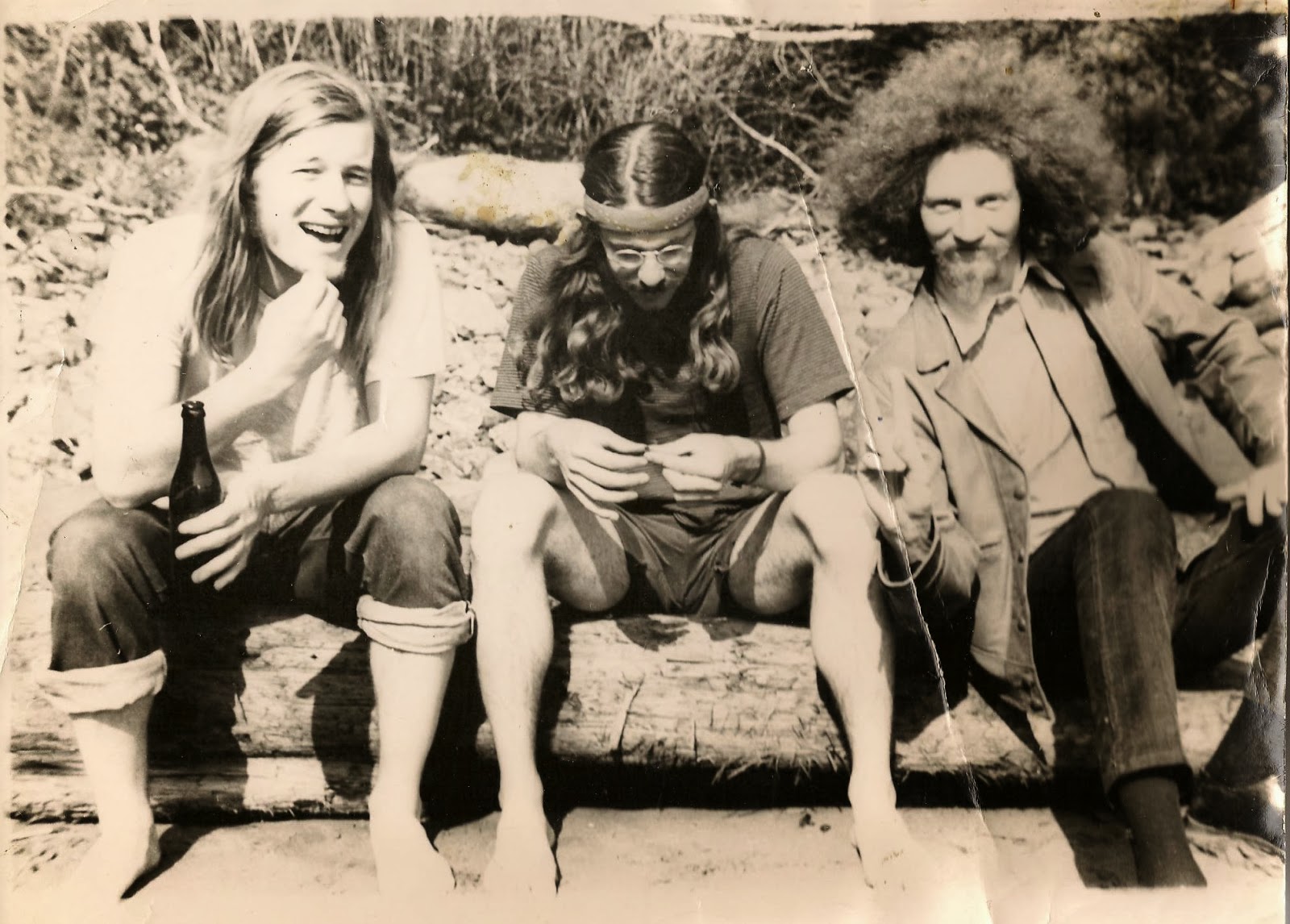
What are some bands that you enjoy?
Rick: The bands we had the most contact and admiration for were Janis and Big Brother, Country Joe and the Fish, The Youngbloods, Sons of Champlin. Nick Gravenites of Electric Flag was very helpful to us and took us under his wing. Also Jesse Colin Young and Jerry Corbett of the Youngbloods gave us invaluable assistance preparing for our second album that Jerry produced for us. I did not have one favourite group, but rather a handful of musicians that I admired.
Tom: I like the Electric Flag with Michael Bloomfield best, though they were not a San Francisco band. I have always thought that the best San Francisco band musically was the Sons of Champlin. Their lead singer Bill Champlin now sings with the band Chicago.
“This trend pre-dates the Grateful Dead’s ‘American Beauty’ album, which marked a big shift to roots inspired music for a lot of groups.”
Tom Manning left the band to end his college. You went to studio to record Paradise Bar and Grill. Richard Brautigan appears reading “Love’s Not The Way To Treat A Friend” on the album?
Rick: The psychedelic music scene was wonderful and interesting for a time, but eventually we came back to our ‘roots’, as it were. I had been playing acoustic guitar since age 7. I had studied early blues, ragtime guitar, fiddle tunes (on the guitar), and folk music prior to joining Mad River. By the time we were doing Paradise Bar and Grill, we were all writing tunes. We also played acoustically at the Freight and Salvage on occasion, and that simpler and less chaotic music was where we moved to. This trend pre-dates the Grateful Dead’s American Beauty album, which marked a big shift to roots inspired music for a lot of groups. Mad River was always innovative and trying to find new ways to say what we wanted to get out there. By 1968 or so, the drug scene was becoming toxic for a lot of people, and friends were succumbing to early deaths from that. Psychedelic music was no longer prophetic for us and we wanted to do music we could sustain. So on the second album we moved to a more diverse set of music. There was still the long solos on some songs and grooves that allowed for free playing, but the appeal of a more natural sound and a core more people could relate to took us in a different direction. Including Richard Brautigan’s piece was an example of this. We wanted to return the favour he had given us by putting a piece on the recording with him reading- a very radical concept at the time. Also my piece, “Equinox”, went to an almost medieval and classical sound. I still love that album for the range and variety it contained. I guess we lost a few fans who expected more of the same, but we were always trying to cut new territory and that is where it led us. Turns out that Brautigan’s poem is one of the only recordings he did, and the only one to music, so it was an important piece for that alone.
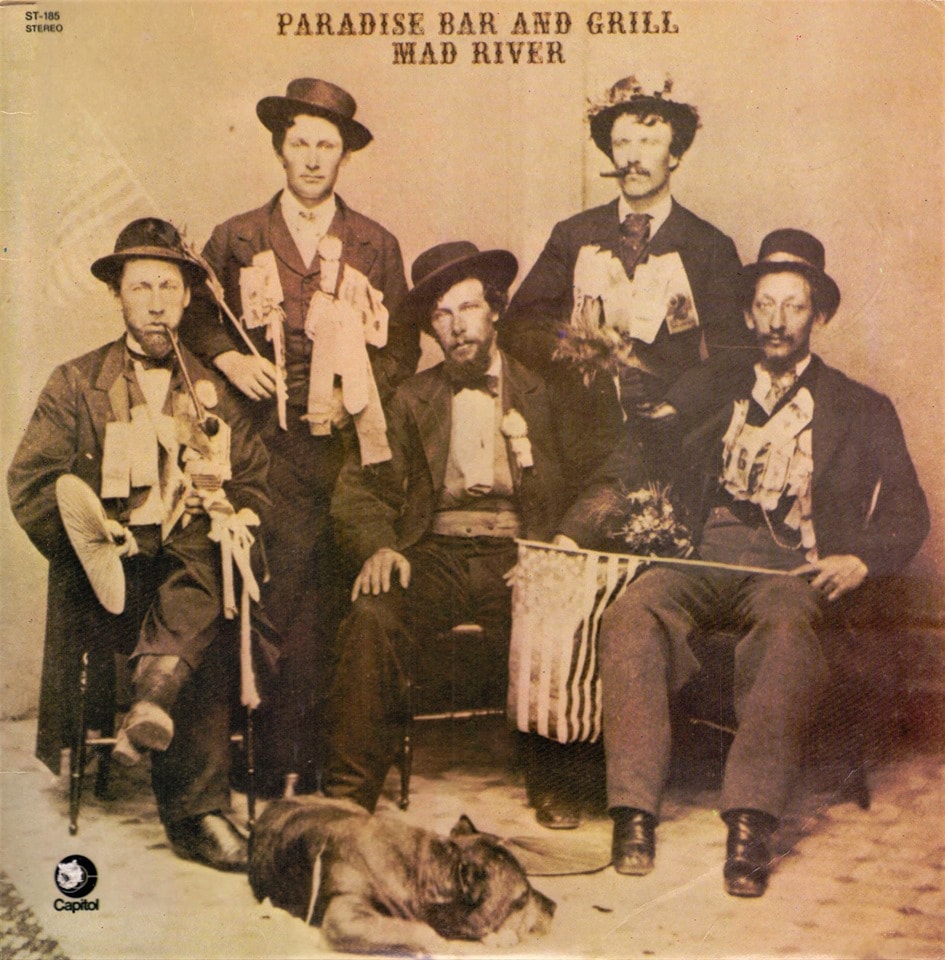
Tom: “Love’s Not The Way To Treat A Friend” was recorded during the sessions for the first album, as was “They Brought Sadness”. They were not included on the first record. Richard had never read his poems to music before, and it was trip trying to get him to read in time with the music.
All of us had folk and old rock roots, and after I left the band naturally reverted back to the music we loved as younger players. The psychedelic scene was slowly winding down, and many bands were going back to older styles that they started with. Jerry Garcia was a folk guitar and banjo player before the Grateful Dead got started, and so many, many of the other musicians that became famous at that time were old folkies.
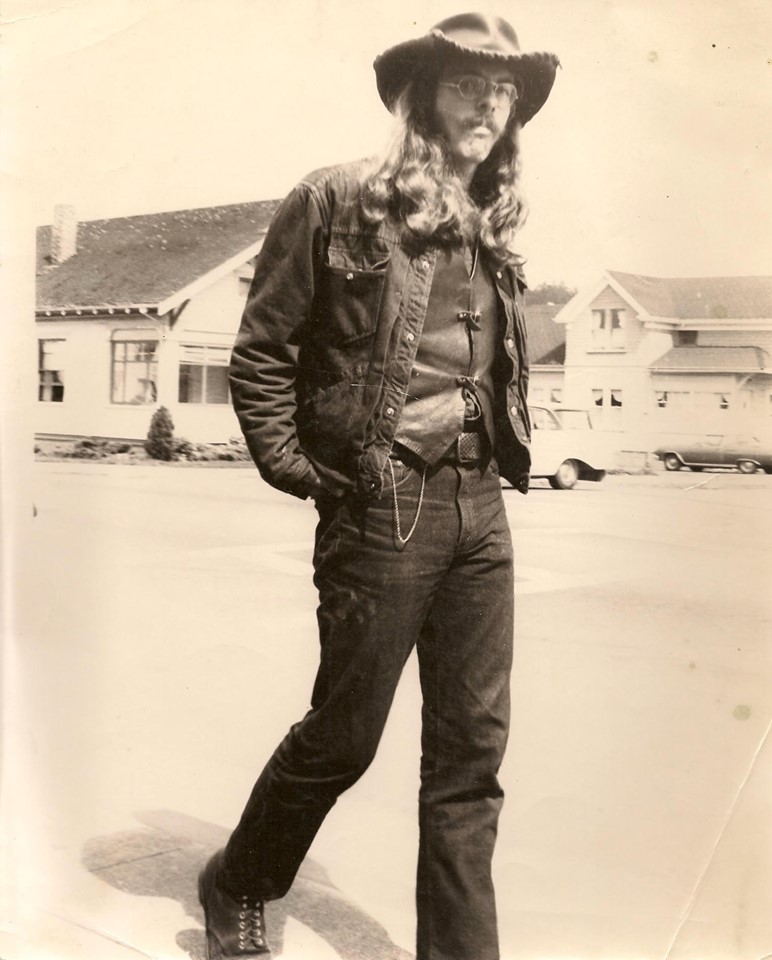
You also supported Richard Brautigan’s free book “Please Plant This Book” that consisted of a folder with seed packages in it and poems on each one. It was given away on the street in Sausalito and Berkeley. What’s the story behind this?
Tom: I wish I still had my copy. I remember only that we help Richard hand it out, and we gave to monetary support as well. The other guys might have more details.
Why did Mad River disbanded?
Rick: The Vietnam War, which was our inspiration musically, began to dog the band. We either had to join the army, go back to school, or leave the country. I had dual citizenship from my Canadian parents, Duke had some physical limitations that kept him out of service, but for David and Lawrence going back to university was the answer. We were not all that harmonious at that point. It had been a very busy few years, and we were all stressed and frayed from trying to live on nothing and carry on. Our musical success never manifested into a good living for us and we were very disillusioned with the music business by then. Duke began playing with the Fish, I began doing some studio work and teaching guitar, the others went back to school. We could not sustain our music work in the current environment any longer, so the band broke up.
Tom: I was already out of the band before the recording of the second album, but we were not being supported by Capital. They didn’t know how to sell us, so it became a very unsatisfying relationship. The other guys would have more details.
Lawrence and David returned to university to continue their educations, Duke went on to play with Jefferson Starship, Country Joe and the Fish, and Dan Hicks and you (Rick Bockner) moved to the mountains of British Columbia and started working on your own music. Today you have a nice set of albums out. Would you like to introduce your work to our readers?
Rick: I moved to the mountains of B.C. and lived in a small cabin in the woods without electricity which I shared with MR’s roadie, Ely Newman. I began to write more tunes and find my own voice musically and got more confident as a solo performer. It was a complete shift from the Berkeley scene and all that went with it. I played the festival circuit in B.C. a bit, but mostly I learned to write songs and get the guitar to be an integral part of my compositions. I built my main guitar in 1978 from a Martin OM design. I still play it almost daily.
In 1992 I recorded Trouble With The Moon, a collection of my songs produced by Simon Kendall (of Doug and The Slugs). We had a pretty decent budget for that one and got a little carried away with arrangements that included bass clarinet, fiddle, drums and bass, some b.g. vocals, etc. I still like the album for the songs, some of which I still perform, but we could have done it cheaper and more simply.
In 1998, I got Fret Lizard recorded. This CD was themed around my primary musical inspirations and duets with some of my favourite collaborators (Woody Mann, John Reischman, Ken Hamm, Simon Kendall) and includes a mix of early blues, Rev. Gary Davis tunes, some finger style arrangements of fiddle tunes, some celtic guitar tunes I put together, and four or five of my own tunes. It really catches me at a good time in my playing career and was fun to record. I still like that CD a lot.
I recorded an album with the wonderful musician and harmonica player Keith Bennett in 2000, called Think For Yourself. We toured a bit in Europe together and did that recording in his small studio in Vancouver. It is a collection of mostly blues from the 1920’s up to Duke Ellington. We had no budget and got the separation we needed sonically by using old office dividers with a foamy mattress over them to make a deader sound!
I did an instrumental album with Plinio Cutait, a wonderful Brazilian pianist. We share a common interest and practice in Reiki, a Japanese healing art. This CD was primarily for the Reiki community. I call it ‘bathtub music’ as it is relaxing and soothing. It is unlike my other recordings to date.
In 2011 I recorded Regeneration with my youngest daughter Amy, who is blessed with a truly wonderful voice. This CD is a mix of my original tunes, some instrumentals on guitar, a Gary Davis song sung by Amy, her version of the Sam Cooke classic “Change is Going To Come”, and a couple of early blues. I love this one and I was lucky to get Amy in the studio on her way to Mexico to capture her voice on these recordings.
All of these recordings are available as CDs from Harby Dar Music, Box 224, Whaletown, B.C., or through my website www.rickbockner.com
I have slowed down a bit the last few years. Doing music for a living in Canada is sort of like driving to the Moon- big country not a lot of venues. The shift to digital music has gutted both the venues for acoustic music, and the willingness of people to pay for independent music. It has been a great ride, and I cannot evaluate the contributions Mad River or myself have made to the world in general, but it was always my goal to be as good a musician as I was capable of and to follow my Muse. Mostly, I am grateful to have been a part of such a great band (we are all still close friends and get together every few years), and to have had the space to hone my skills on guitar at such a young age.
Tom: Lawrence continued to play, while going to UC Berkeley, and had a band called Lawrence Hammond and The Whiplash Band, which has 2 albums out, the first on Tacoma Records and the second on Shagrat (called Presumed Lost because the master was missing for many years). David continued his education, supporting himself by painting houses and doing construction. He became a general building contractor and has run his own businesses for many years. I finished my degree in biology/ecology at UC Berkeley and began teaching marine science onboard a ship on San Francisco Bay (8 years). I ran an office of a wild animal trapping firm in Denver (12 years), taught cognitive therapy (4 years), and taught high school biology, earth science, and music in a school for special education kids (8 years). I am now retired.
So, you’re all still in contact?
Rick: Yes, regularly. We gather when we can for reunions every couple of years, and keep in touch through emails. They are my brothers and we shared the best times of our youth together, so the bond is permanent.
Tom: We get together every few years for a reunion…the last one was last February 2013 in Tucson Arizona. We are in contact with each other regularly.
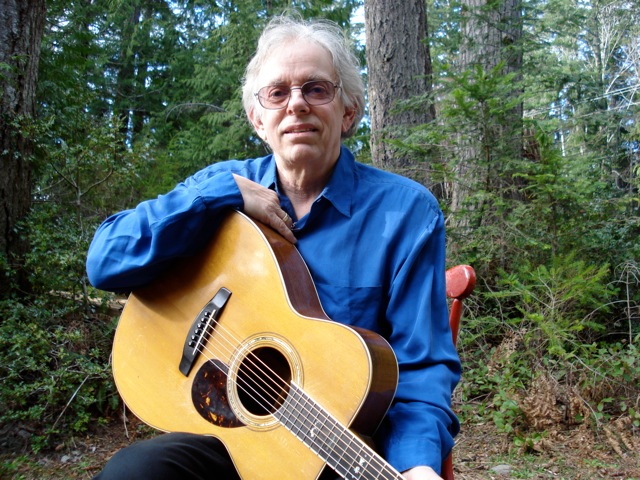
What are some of your future plans?
Rick: Stay happy, healthy, enjoy my family, friends, and community. Make music at every opportunity, and continue to teach and explore my own music that evolves from my life. I would like to record an instrumental album of contemporary guitar in the near future. I am building a music room onto my house so I can teach more and put on small house concerts for visiting friends. I would like to get across the idea that I learned from my parents, that music is something anyone can make at some level, and that the joy of making your own music can free you from the death grip of the commercial music industry. So the revolution is still happening within me.
Tom: I am enjoying retirement, working on my house, playing lots of music (12 string guitar) and traveling whenever I can. I have been married for 28 years.
Would you like to send a message to your fans and to readers of It’s Psychedelic Baby Magazine?
Tom: I am always happy to hear that our music is still loved and enjoyed by people all over the world, and since we all still play (usually not together, but what the heck) you might see one or more of us in your neck of the woods some day!
-Klemen Breznikar
Special thanks to Nigel Cross of Shagrat Records.

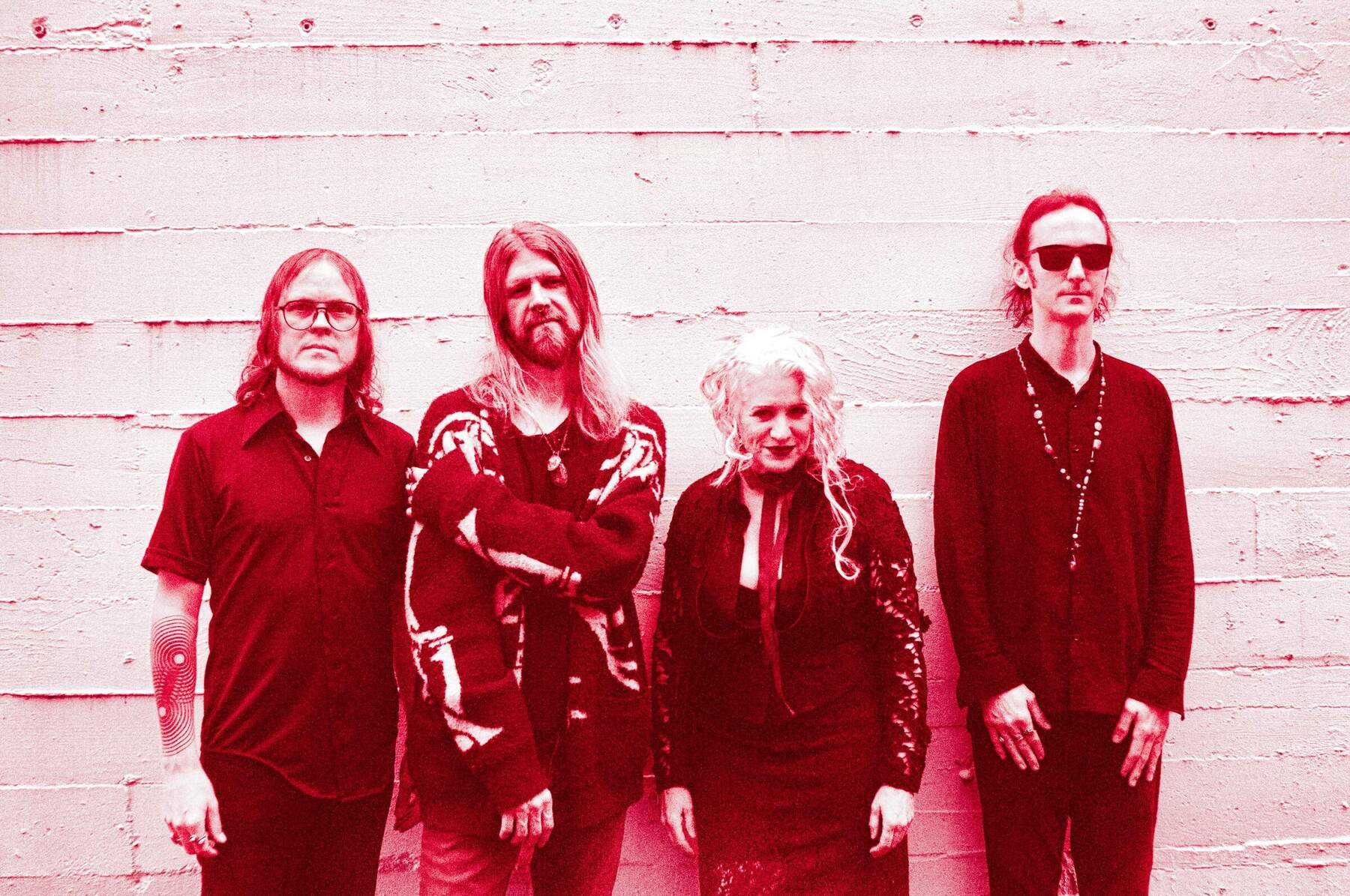
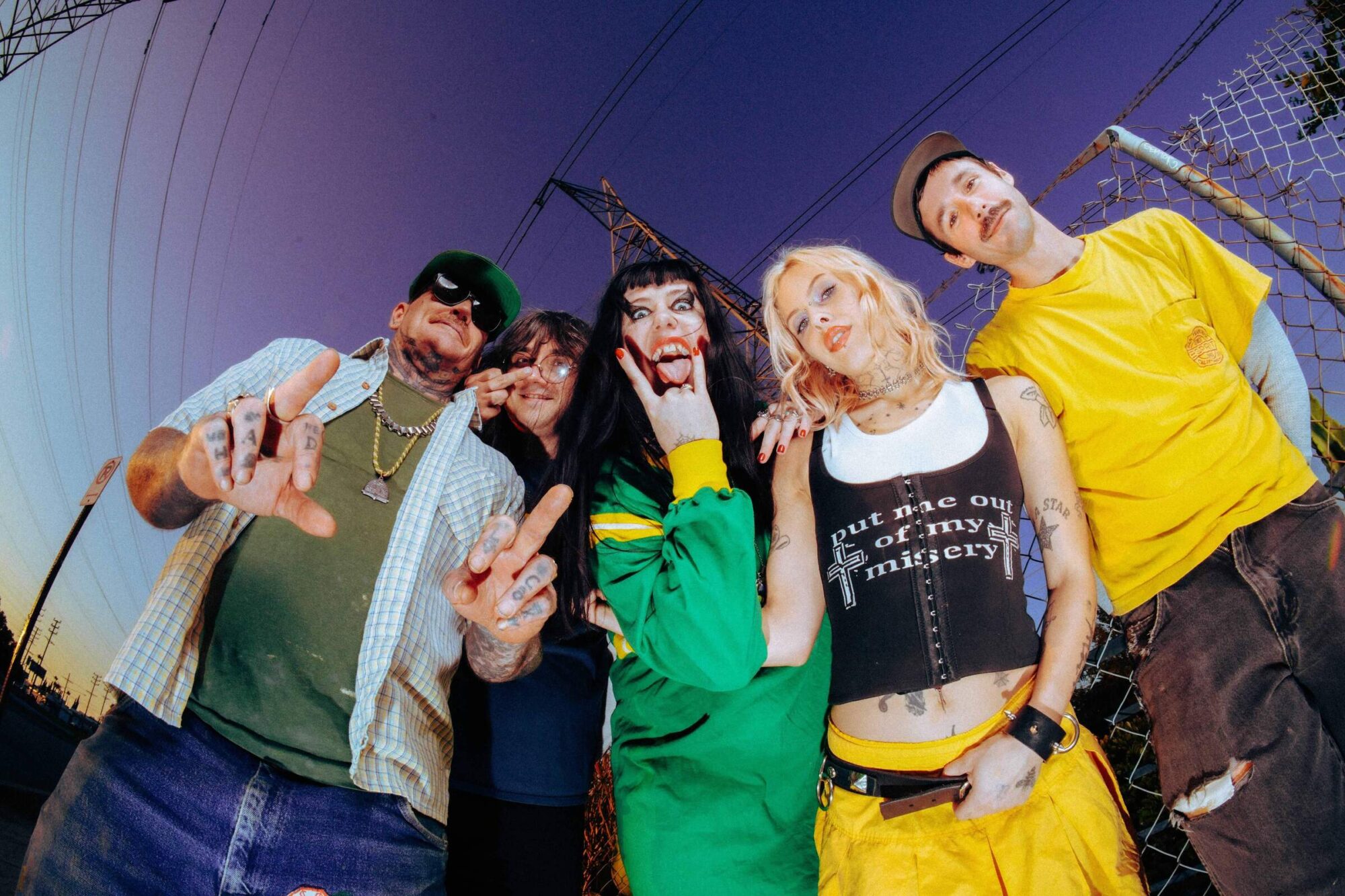
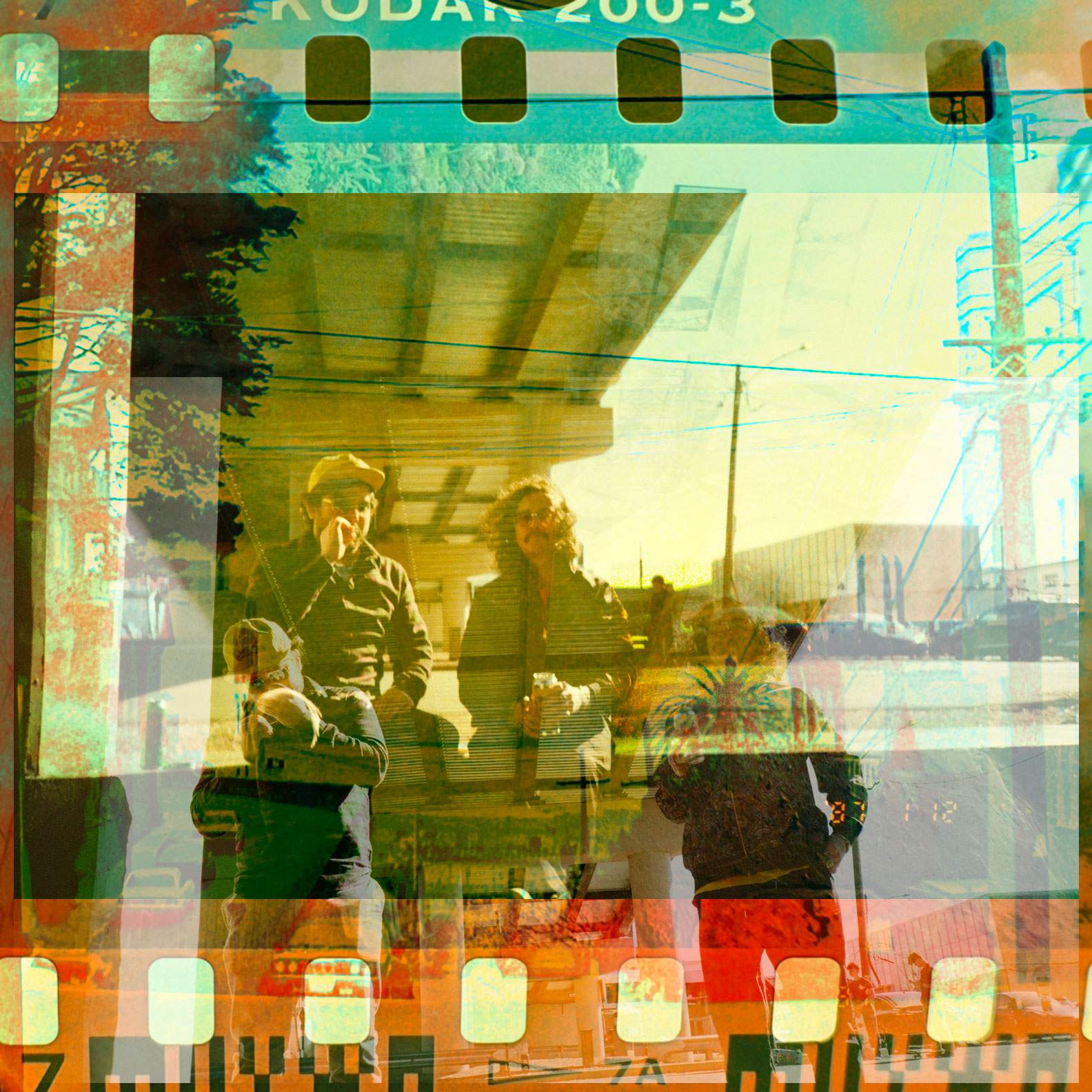
Great interview and remembrances. I learned a lot about Mad River as well as the San Francisco scene that surrounded it. Keep up the good work!
Thanks for the article about Mad River. Not only were they intelligent individuals pushing the boundries of the music of the 60s, they were and are all good people. And they are all like family, still in touch and enjoying each other and their spouses, kids, varied living styles and locations, and life accomplishments. Listen to their albums for very strange and far out poetic lyrics, some of the best lead guitar and drumming ever recorded in the '60s, and moods ranging from Vietnam outrage to lullabys.
Great interview! I enjoyed that thoroughly. Mad River was a fine band. I wonder if any of the Mad River guys concretely remember playing the Aquarian Family Festival around San Jose in May 1969? It was a little-documented pre-Woodstock music festival. Supposedly, they played there, but I've asked several of the MR guys who don't specifically recall playing it. From still photos that Greg Dewey had in a chest, I did the scans (actually just digital photos) of many of the images reproduced in this interview. I know, who cares, but (!) on the back of the washed out image of Greg relaxing alone in the Fell Street apartment was an (unsent) typewritten letter to his dad (an Antioch College instructor, if not professor). Though undated, the letter seems to be written soon before the release of their eponymous debut album. In the letter, Greg writes about some possible titles to the album, specifically "Jesus Crow" and "Crow" ("I think, and we will probably all agree, that the album will be called simply 'CROW' and that is all."). Greg also wrote drolly about his "counterfeiting" "arrest" for possession of a Digger dollar. Again, great interview. How about an interview with MR's Dr. Hammond?
Thank you for an excellent interview. I have followed Mad River since the first album came out many years ago and finally since the digital age, we've been able to to learn so much more about them and see so much more in print. The obvious question never asked though is "Why not a reunion?" We know everyone is in their late 60s or whatever but a mini tour or some new EPs would be so welcomed. Everyone is still around right? Why not?
Just came across this. Neighbor Rick gave me my first – and only – guitar lessons back in StL in the 60s. Happy to say my guitar journey continues. Wonderful interview!
In summer 1969 I was 15. In upper northern Michigan I traded Led Zeppelin’s first album for Mad River. I still have the vinyl and two cds; also have Paradise Bar and Grill vinyl and cd. I taught myself to play guitar with the albums, still can’t nail Harfy Magnum, Revolution’s in My Pocket, and can’t do justice to Equinox. Mad River revealed to me how superficial much of the scene had become. Thank goodness. I couldn’t convince my friends of that, which, to me, was a reward in itself. So much more I would like to say, but will leave it at Thank You, Mad River.
In summer 1969 I was 15. In upper northern Michigan I traded Led Zeppelin’s first album for Mad River. I still have the vinyl and two cds; also have Paradise Bar and Grill vinyl and cd. I taught myself to play guitar with the albums, still can’t nail Harfy Magnum, Revolution’s in My Pocket, and can’t do justice to Equinox. Mad River revealed to me how superficial much of the scene had become. Thank goodness. I couldn’t convince my friends of that, which, to me, was a reward in itself. So much more I would like to say, but will leave it at Thank You, Mad River. And thanks to this site for the interview.
Wow, thanks for that, all these years later, Halloween 2019. I just Loved Paradise Bar and Grill and played it all the time, for everybody that came in our very musical family house. We became friends with Duke Dewey later, In Marin County. I loved Mad River.
I went to UC Davis in the late ’60’s and found Paradise Bar and Grill in a Payless record display. I didn’t know the group, but loved the album cover (hey, I was still young). I lived in a house with 12 other people and we called our house Paradise Bar and Grill for the 3 years we lived there. We still call ourselves the PBGers, 50 years later. And, we sang the song a few times in the house for friends. So thanks, you guys — it was an important record in my history. I’m gonna go play it right now.
I loved Mad River’s music. And I liked the members of the band—all excellent individuals.
I became their manager, because they knew me a bit at Antioch, and I had a VW bus that could fit all the band and get them to their gigs.
Although Capitol Records wasn’t at all a good fit, our lawyer, Richard Hodge, got us a rather good contract, with complete artistic freedom, and I had fun with that, designing the album covers, making absurd radio ads, and finding an artist who created exquisite pen and ink drawings for our full page ads in Rolling Stone. We actually won Rolling Stone’s first ever album ad of the year award.
Lawrence eventually went to medical school at Harvard, and I went to medical school at Queen’s University in Kingston, Ontario.
Although 45 years have passed since Mad River existed, I still feel like they are a second family to me, and I’m looking forward to our next reunion in June